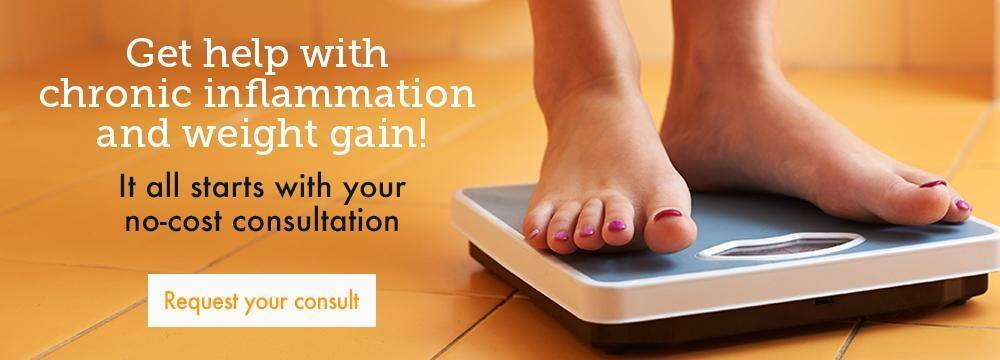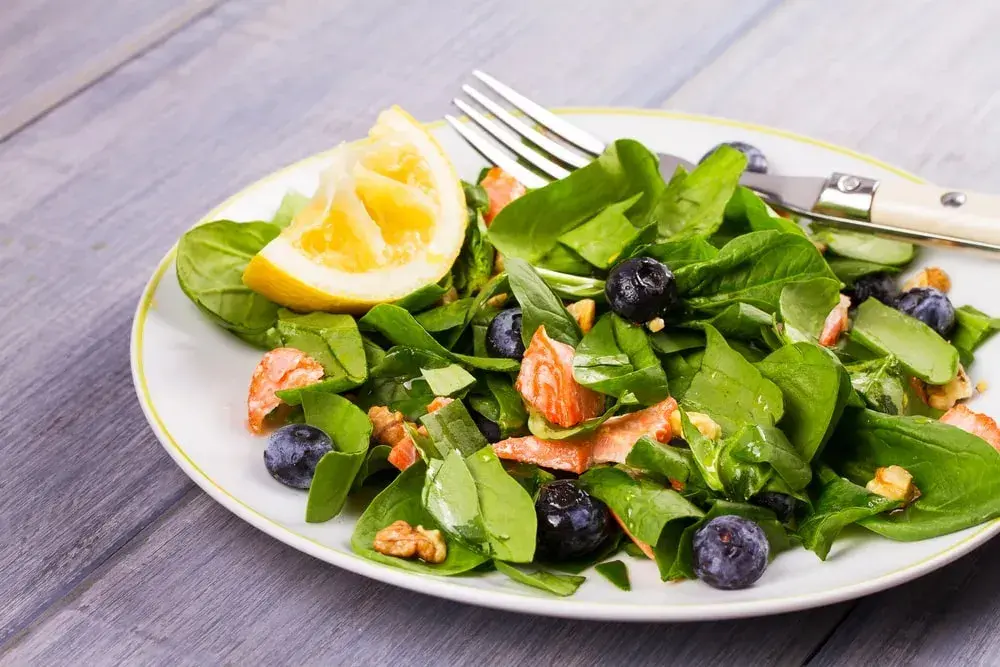4 min read
6 Things You Didn’t Know Can Reduce Inflammation
Garcia Weight Loss
:
Jan 25, 2019 12:00:00 AM

/assets/images/provider/photos/2579777.jpg)
Inflammation is both a necessary body process and an enemy to good health, depending on the type of inflammation and what’s causing it. We need short-term inflammation to help heal trauma like injuries and infections. Chronic, long-term inflammation, however, can disrupt processes throughout the body and is linked to a number of serious health problems.
But you don’t have to let inflammation hijack your health. There are a number of things you can do to reduce inflammation and boost your well-being to new levels. Take a look at these 6 anti-inflammatory habits you can easily add to your daily routine.
1. Focus on sleep
We’ve already discussed how a lack of sleep can affect physical and mental health in many ways. Numerous studies have shown that lack of sleep increases markers of inflammation in the body.
In today’s over-scheduled and sleep-deprived society, it can be overwhelming to think about ways to get more sleep at night. This may require a hard look at your schedule or giving up certain habits in order to make sleep a priority. Although this is not always easy, the rewards for your health are well worth it.
Keep a journal of how you spend your time each day, and see if there are ways you can buy some time during the day in order to get to bed earlier. How much time do you spend watching TV or scrolling through Facebook? Try to limit these activities to 30 minutes or an hour. Then use that extra time to get to bed earlier. Even just 30 extra minutes of sleep is a step in the right direction.
2. Get regular exercise
Like sleep, many people neglect exercise because they feel we don’t have time in their schedules. But getting adequate, regular exercise is another crucial step toward achieving better health and reducing inflammation.
Experts recommend 30 minutes of exercise a day, five times a week. But any exercise you get is better than none, so don’t let these recommendations overwhelm you if you’re just getting started. In fact, an article in the journal Brain, Behavior, and Immunity reports that a single session of exercise lowers inflammation in the body.
And, exercise doesn’t have to mean hitting the gym or going for a run. Walking is one of the easiest ways to get your body moving and offers numerous benefits.
Bonus: Being active is one of the best ways to improve your sleep, so you’ll be tackling two inflammation-killers with one task.
3. Get your omega-3s
Omega-3 fats are some of the healthiest fats you should be eating — and most of us aren’t getting nearly enough. You might already know that these special polyunsaturated fats, found mainly in fatty fish, are good for the heart. This is at least partially because omega-3s are excellent inflammation fighters. By reducing inflammation, they help reduce the risk of many health conditions linked to inflammation, including heart disease, depression, and diabetes.
In contrast, consuming too much omega-6 — another type of polyunsaturated fat often found in fried and processed foods — can offset the positive effects of omega-3. So in addition to eating more of the healthy omega-3s, eat less of the unhealthy omega-6s for the optimal balance in your body and anti-inflammatory power.
Two servings a week of fatty fish like salmon will supply you with omega-3s, but many people need a supplement to get enough. A supplement like Omega-3 Pro may be a good way to get your optimal amount.
4. Try curcumin
Curcumin is a compound found naturally in the spice turmeric. If you’ve ever eaten curry, you’ve consumed turmeric, as it is the ingredient that gives curry its yellow color. But this age-old spice does more than flavor up your food: the curcumin in it has powerful medicinal properties. Specifically, curcumin is an anti-inflammatory that has been proven to have effects in many clinical trials.
If you don’t eat Indian food or curry very often, you can still get your fill of curcumin through a supplement. But, ask a doctor before taking curcumin, especially in high doses. People with certain health problems should not take it.
You can also get curcumin through a cup of turmeric tea or turmeric milk, sometimes called golden milk. Look for golden milk recipes online, and purchase the tea from health food stores. Or try a turmeric latte as an alternative to coffee.
5. Drink green tea
Green tea, though part of the Chinese and Japanese cultures for hundreds of years, is a fairly new trend in the U.S. Made by the same tea leaves as black tea, green tea is not fermented like black tea, so it retains its natural green color. And, green tea contains potent antioxidants that may help fight cancer and other diseases. Much of its disease-fighting power is owed to its anti-inflammatory capability.
Because of its known health benefits, green tea has become easy to find in stores and at coffee shops. Matcha tea, a Japanese form of green tea powder that is dissolved directly in a beverage rather than steeping with a tea bag, is another great choice.
Avoid adding sugar, honey, or agave to your green tea, as sugar causes inflammation and may counteract its health benefits. Try a healthy sugar substitute if you don’t enjoy your tea unsweetened.
6. Get enough vitamin D
Vitamin D is called the sunshine vitamin because our skin produces it when it’s exposed to UV light. And vitamin D has become a well-known nutrient because it’s believed to help fight a number of diseases, including diabetes and cancer. This may be due to its ability to decrease inflammation, which has been well-documented in medical studies.
The advice on how to get vitamin D can be confusing, however. Experts don’t agree on whether vitamin D from sun exposure is good for you. Skin cancer experts and dermatologists generally say we should always wear sunscreen and avoid unnecessary sun exposure year-round. Others, however, assert that a few minutes of sun exposure is beneficial for vitamin D levels without risking long-term skin damage.
One thing we do know is that optimal amounts of vitamin D help fight inflammation and the diseases caused by it. This means if you’re not getting enough vitamin D, your body could be fighting an inflammatory battle. But should you go out in the sun or take a pill?
Until a final determination is made, talk to your doctor. Most people can benefit from a vitamin D supplement of 800 IU or more per day. People at risk of skin cancer, in particular, may need to avoid sunlight and use supplements only. It’s a determination that you and your doctor can make together.
Need help reducing inflammation and meeting your health goals? Garcia Weight Loss and Wellness Centers offer personalized weight-loss plans with consistent, professional support to help you overcome your biggest health challenges. Contact us today for a no-cost consultation!



